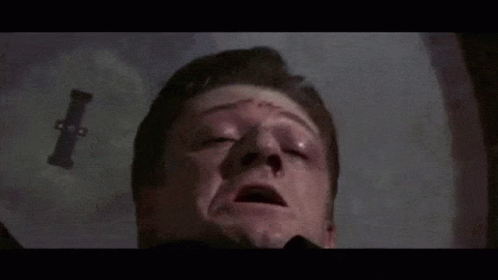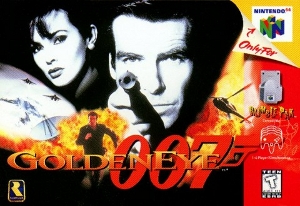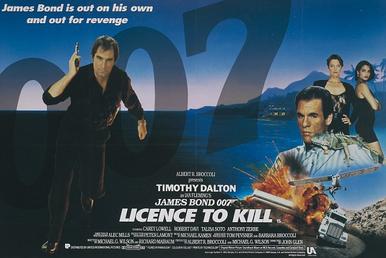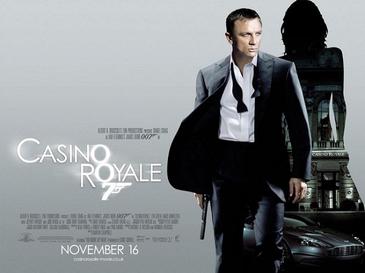1- Goldfinger: The film which to all intents and purposes invented the modern action genre and where barely a minute passes without another iconic scene, visual character, music cue or set-piece. Point out its flaws all you like - Bond is relatively passive throughout; the film tips the series into camp - but Goldfinger delivers everything you could possibly want from the series at maximum output from start to finish. The cast is uniformly perfect, led by Connery at maximum magnetism, and it sorts out all the problems with Fleming's rather week book with aplomb.
2- From Russia With Love: One of the more old-fashioned Bond films in its quasi-Hitchcockian aesthetics, but under the hood is a more mischievous, groundbreaking film than the relatively stolid thriller output of the time. While it leans into suspense and plot a lot more than most subsequent Bonds - the Connery era does cross-film continuity far more intelligently and effortlessly than the Craig era's heavy-handed attempts - it also has an all-time great action sequence in the train fight with Red Grant, one of Bond's most charismatic allies in Kerim Bey, some cracking one-liners ("Found your technique too violent?") and a palpable sense of the flavour of early sixties' Istanbul. Bond also has a threesome with two gypsies in a middle act which is the perfect answer to the question 'How would any man like to spend his fantasy holiday?'
3- On Her Majesty's Secret Service: For a start, I'm a George Lazenby defender. If he's not as natural as Connery and lays on the smarm a bit thick at times, he delivers a fine performance taking the character into uncharted emotional territory, especially the final scene of him cradling his dead wife's body (cannily instructed by director Peter Hunt to be emotional but not cry, because this is still Bond we're talking about). Outside that, Majesty's is great fun throughout and remarkably experimental in its editing and pacing (no surprise that Hunt was a groundbreaking editor on the series before being promoted to direct this film). Not all of it works but unlike Quantum of Solace, the action is lightning fast without ever losing the geography of the scene. Like Goldfinger, this has everything you'd want from a Bond, topped off with a genuinely heartfelt romance (aside from the whole 'sleeps with an entire ski resort of women' bit in the middle act, but hey, he's still Bond) with arguably the best-written Bond woman - played with great nuance and feeling by Diana Rigg - the best Blofeld in Telly Savalas, another great ally in Draco, and one of John Barry's most vividly recognisable scores. Even if you don't like Lazenby, it's a scorcher.
4- Licence To Kill: The first film to send Bond rogue did so without a single punch pulled and powerhouse performances from Timothy Dalton and Robert Davi as the villainous Sanchez. If it does indeed emulate the tone and look of American action films at the time, it does so with action sequences that blow most of them out of the water in scale and construction (Bond's infiltration and escape from the Wave Krest, and the tanker truck finale, are masterfully staged and edited), with a tight plot and a healthy dollop of Flemingian flair and cynicism (Wayne Newton's televangelist is a character very much in the Fleming spirit despite not literally being created by him). Pam Bouvier and Lupe Lamora are an engaging set of Bond girls with their own agendas and motivations, and Benicio Del Toro's Dario a wonderfully sinister henchman. Its reappraisal in recent years is long overdue.
5- Skyfall: The best of Craig's output mostly because it's the first to feel as though it's actually having some fun. If the actor himself is running in second gear throughout - his investment declined precipitously after his all-timer performance in Casino Royale - everything else from the score to the action and the gorgeous cinematography is on top form to compensate. Javier Bardem hams it up as the most memorable villain of Craig's rather limp lineup of antagonists, and its thematic analysis of the relevance of the Bond character in his 50th cinematic anniversary gave the film a depth without being too overbearing (unless you really hate the Tennyson poem, which hits the mark for me). No, the plot doesn't make much sense, but join the queue: if you're watching Bonds for coherent plotting, you're missing the point entirely.
PS: I actually ranked and wrote about all 25 Bond films on a blog I used to maintain last year. If you're interested in reading more of my thoughts on the series,
here's a link to the piece on my top five (with links to the others contained within). There's no advertising and I don't write there anymore, so the self-promotional aspect is basically nil.







